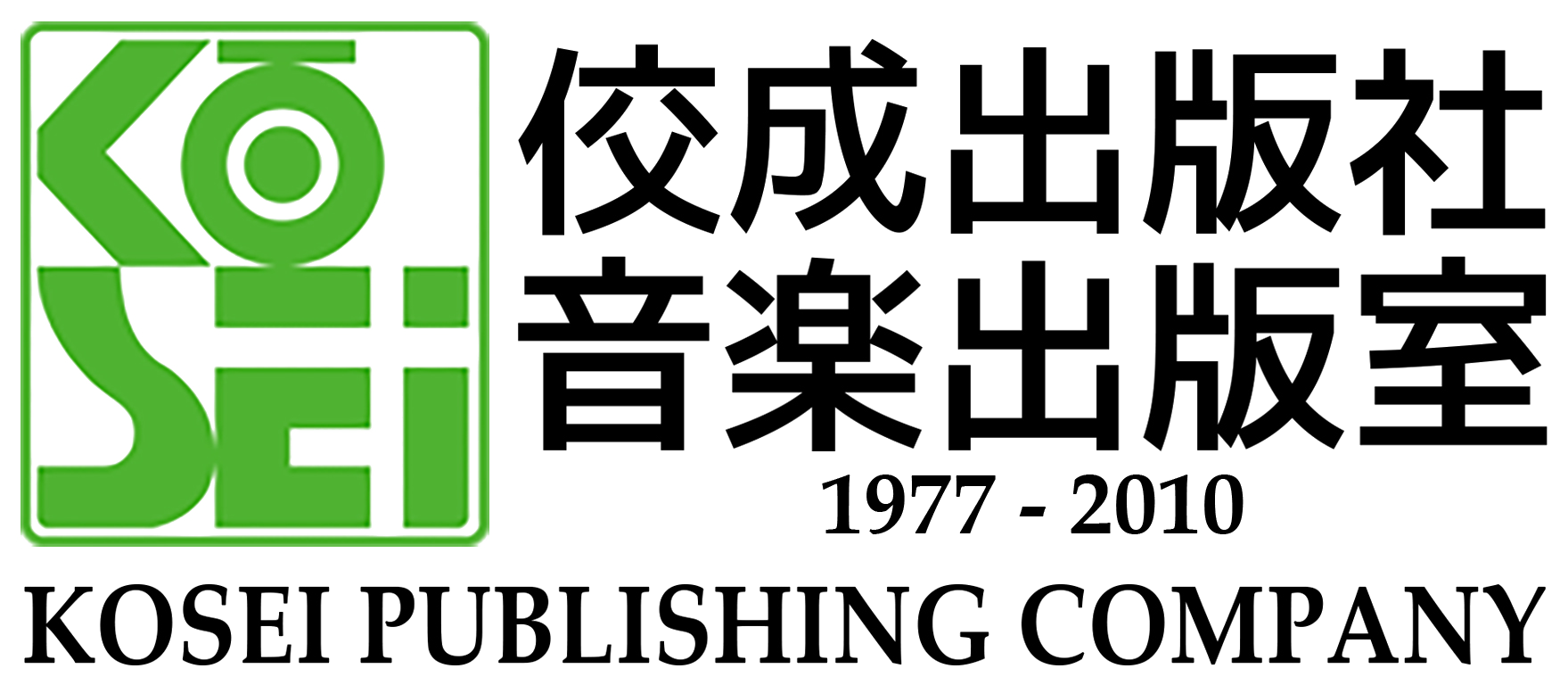About KOCD
Unparalleled Wind Master Archives
The Kosei label boasts unparalleled wind music archives featuring wind orchestras, brass bands, and various kinds of ensembles and solos by the wind instruments and the percussion.Since Kosei’s first LP record release in 1979, its catalog contents have subsequently been released has found no equal in its field in terms of both quality and quantity, and the Tokyo Kosei Wind Orchestra have gained worldwide recognition. Even now, in the twenty-first century, where online music distribution dominates— instead of the records and the CDs —we can enjoy nearly a thousand works via the iTunes app. What a wonderful collection it is.
Some of our characteristic series are listed below.
Kazuyoshi Akiyama’s Wind Series
In order to introduce the public to the excellent Tokyo Kosei Wind Orchestra, we used its name as the title of this series. Eight LP records were released during the period of 1979 to 1984. When those recordings were re-released as CDs in 1988, the music was reorganized into six themes such as Alfred Reed, Modern and Postmodern Eras, Japanese, Classical, Russia, and America. A renowned conductor Kazuyoshi Akiyama realized fantastic results. From among these themes, such recordings as Alfred Reed’s Three Revelations from the Lotus Sutra and Robert Edward Jager’s second symphony, The Seal of the Three Laws stand out and will be handed down to future generations.Guest Conductors Series
Starting with the LP record Alfred Reed and Tokyo Kosei Wind Orchestra, produced in 1981, Kosei label released a series of recordings by conductors, composers, and arrangers such as Robert Edward Jager, Frederick Fennell, Arnold Gabriel, Donald Hunsberger, James Barnes, Kazufumi Yamashita, Ichiro Saito, Genba Fujita, and Naohiro Iwai, all of whom were involved as guests in the Tokyo Kosei Wind Orchestra’s concerts and recordings. In this series, a number of session recordings which Alfred Reed and James Barnes conducted their own original compositions and arrangements, and the Naohiro Iwai Collection recorded under his own direction near his later years are very special items. The Collection of Alfred Reed Compositions Plus, which is a selection of his thirty-three works conducted by himself, is also exceptional.Fennell’s Wind Ensemble Series
Introducing the concept of wind ensembles that were clearly distinguished from existing symphonic bands, Frederick Fennell founded the Eastman Wind Ensemble in 1952. The Fennell’s Wind Ensemble Series, conducted by internationally recognized Frederick Fennell (1914–2004) who is “Conductor Laureate” of the Tokyo Kosei Wind Orchestra, emphasized the concept of wind ensembles not unlike those of his Eastman period. Eight LP albums were produced between 1984 and 1986 and were then re-issued as the CDs in 1988. From James Clifton Williams Jr.’s Fanfare and Allegro, Herbert Owen Reed’s La Fiesta Mexicana, John Philip Sousa’s Hands across the Sea, to Percy Aldridge Grainger’s Lincolnshire Posy, the songs in all album titles were Fennell's classic standards. The jacket photographs with a sense of unity were also popular.Frederick Fennell Series
This Fennell conducting series broadened the concept of Wind Ensemble Series, expanding the repertoire to include both contemporary works and classic arrangements. After his previous Wind Ensemble Series, Symphonic Song was released as first album in 1987, following which maestro Fennell made further innovations one after another. In addition to Joseph Horovitz’s Dance Suites and Philip Sparke’s Celebration, which are the Tokyo Kosei Wind Orchestra’s commissioned works to European composers; Nikolay Yakovlevich Myaskovsky’s Nineteenth Symphony; Dmitri Shostakovich’s Fifth Symphony, transcribed by Yasuhide Ito; and other works constitute a repertoire that was not seen in Fennell’s American period. A collection of Vaclav Neihybel’s works, Sinfonia Resurrections, which was released in 1997, won especially high regard. After Fennell’s passing, Bravo, Maestro! Encore!, which was released in 2005, was produced from such treasured sound sources as live performances. This work is a collection of encores that particularly moved concert audiences, and part of the proceeds were devoted to a fund for training hearing dogs in California.European Wind Circles
All of the seven titles of this series were released between 1991 and 2009. This series overturned the accepted notion that wind music originals are American works and launched a boom in European works. The conductors Jan de Haan, Philip Sparke, Jan Van der Roost, Douglas Bostock, and Bert Appermont visited Japan for the recording sessions of this series. Out of this series were born such hit works as Van der Roost’s Spartacus: symphonic tone poem and his Olympica: Festival overture for band, Sparke’s Orient Express and Music for a Festival, Appermont’s Noah’s Ark and symphonic poem Egmont, Franco Cesarini’s Poema Alpestre, Martin Ellerby’s Paris Sketches, and Adam Gorb’s Awayday.Japanese Works Series
Works by Japanese composers who are important pillars of wind music are spotlighted in this series. Starting in 1990, Hiroyuki Odano, Kim Hong-Jae, Hiroyuki Iwaki, and Kazufumi Yamashita worked as conductors; such a lineup consistently drew significant attention. We can enjoy many popular works such as Bin Kaneda’s Passacaglia for Symphonic Band, Toshio Mashima’s Les Trios Notes du Japon and Jacob’s Ladder to a Crescent, Yoichi Kamioka’s march In Autumn Skies, Akira Miyoshi’s Cross-By March for wind music, Jun Nagao’s Reminiscence, and Toshiyasu Tokimatsu’s arrangement of Ikuma Dan’s Procession Fantasy for brass orchestra. In addition, Tonepleromas 55, a collection of wind musical works composed by Toshiro Mayuzumi and conducted by Hiroyuki Iwaki received Excellence Award of Arts Festival by Japanese Agency for Culture Affairs in 1999.In addition to the Tokyo Kosei Wind Orchestra, numerous other ensembles as well as soloists are recording under the Kosei label. Ensembles include Trompeterchor der Stadt Wine, the Tokyo Trumpet Choir, the Walter Boeykens Clarinet Choir, the Hobereaux Clarinet Ensemble, the Mi-Bémol Saxophone Ensemble, the Breeze Brass Band, the Vivid Brass Tokyo, The Tuba Band, Pas de Chats, The Trumpet Concert, and the 4 Bone Lines. And also, the various soloists such as Allen Vizzutti, Yasuto Tanaka, Yoichiro Hokazono, Kazuhiro Miyamura, and Ko-ichiro Yamamoto appeared on the label.

